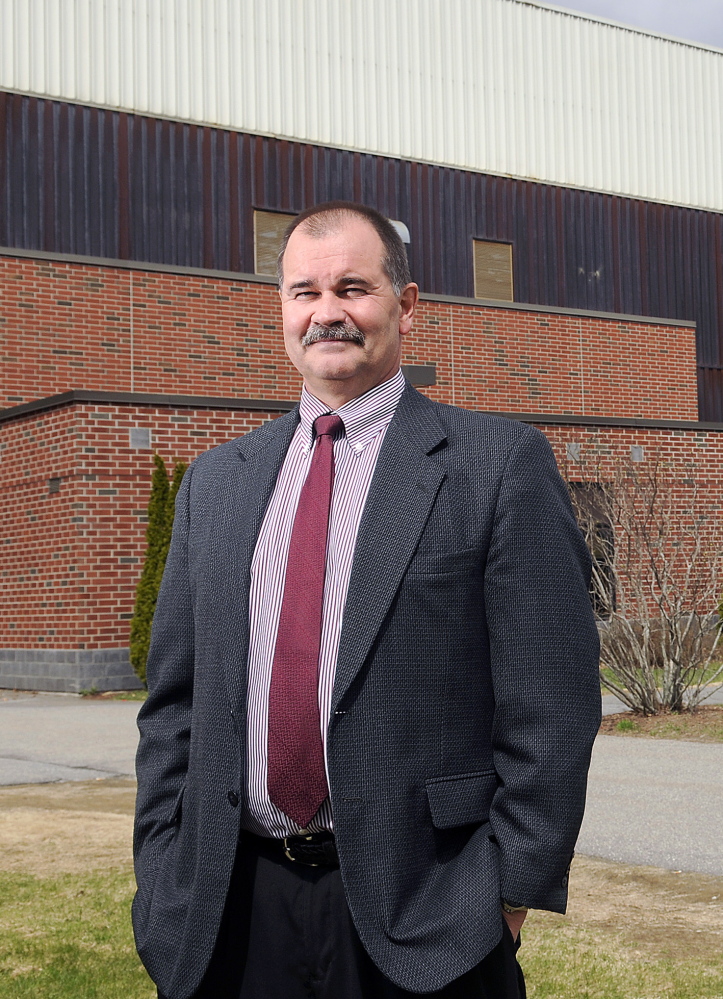AUGUSTA — Four years ago Dana Colwill, director of the Augusta Civic Center, was driving to work one day when an advertisement came on the radio for tickets to an Alan Jackson concert in Bangor. That would have been fine, were it not taking place the very same date the popular country crooner was tentatively scheduled to play in Augusta.
Colwill called the tour’s promoter and learned Jackson was spurning Augusta to play that date instead at the Bangor Waterfront outdoor concert facility, which now can take in up to 16,000 fans, compared to the 6,000-fan capacity at the Augusta Civic Center.
Was that loss of the Jackson show the beginning of the end for big-time concerts in Augusta?
Colwill and many others hope not, but they fear the city-owned auditorium and conference center just off Interstate 95 in Augusta can’t compete for major concert acts with its newer, larger, more well-connected venues in Bangor.
“That’s when our summer concerts started vanishing,” Colwill said of the 2010 opening of the privately promoted concert facility in a city-owned park in Bangor, since renamed Darling’s Waterfront Pavilion.
Most of Augusta’s major winter concert business has repeated that vanishing act, after the 8,000-seat Cross Insurance Center opened in Bangor in 2013.
“Bangor, their niche right now is the concert industry, and that’s hurting us,” Colwill said. “The waterfront, once it was developed, can hold 16,000 people. We can’t compete with that, with 6,000 seats. The Cross Insurance Center holds 8,000. We can’t compete with that. We’ve had some Christian rock shows and Mannheim Steamroller last Christmas, but not the major concerts that draw a lot of attention – all, in my mind, due to the new Bangor facilities.”
He noted that promoters, if they’ve got a show likely to sell out, naturally want to take that act somewhere with the most seats so profit margins will be higher.
Colwill said it’s not just the seating that makes it hard to compete with the Cross Insurance Center, which, like Augusta, can host concerts year-round. He said Global Spectrum, the firm that manages the Cross Insurance Center for the city of Bangor, is part of Comcast-Spectacor, one of the world’s largest entertainment companies, which has ties to venues across the country.
Those ties, Colwill said, allow the company to book acts that are also booked at other venues with which it’s associated.
“They’re huge,” Colwill said of the company. “So, bottom line, the management company in Bangor has got all these contacts and resources which, as just some guy in Maine, I don’t have.”
But that doesn’t mean the current time, or even the financial future, is bleak for the Augusta Civic Center. Quite the opposite, Colwill and other city officials said.
That’s because the 42-year-old city-owned facility’s real niche is conventions, banquets and trade shows, which account for about 90 percent of its business.
That business has allowed the building, over the last 10 years, to roughly break even, which officials said is better than most similar municipal-owned facilities do.
The civic center’s annual budget, proposed to be $2.6 million next year, is determined by projecting what it is expected to bring in for revenue for the year, and then budgeting expenses at that same amount.
“We’ve got to match our expenses up to our revenues, because right now the city doesn’t have the money to subsidize us to any great degree,” Colwill said.
Last year, however, the civic center brought in $163,000 less in revenue than it had for expenses, when depreciation costs are included. Colwill said it was just a down year, with the lowest revenue in his 11 years as director.
Ralph St. Pierre, finance director and assistant city manager, said the city covers such losses by effectively making a loan to the civic center from the city’s fund balance, and the civic center pays that loan back.
“The 10-year trend is it has basically broken even, but last year it lost $163,000,” St. Pierre said. “The numbers are getting better, but we’re still trying to recover from the recession. We think, over the next few years, they’ll become profitable enough to pay that back.”
Copy the Story LinkSend questions/comments to the editors.





Success. Please wait for the page to reload. If the page does not reload within 5 seconds, please refresh the page.
Enter your email and password to access comments.
Hi, to comment on stories you must . This profile is in addition to your subscription and website login.
Already have a commenting profile? .
Invalid username/password.
Please check your email to confirm and complete your registration.
Only subscribers are eligible to post comments. Please subscribe or login first for digital access. Here’s why.
Use the form below to reset your password. When you've submitted your account email, we will send an email with a reset code.